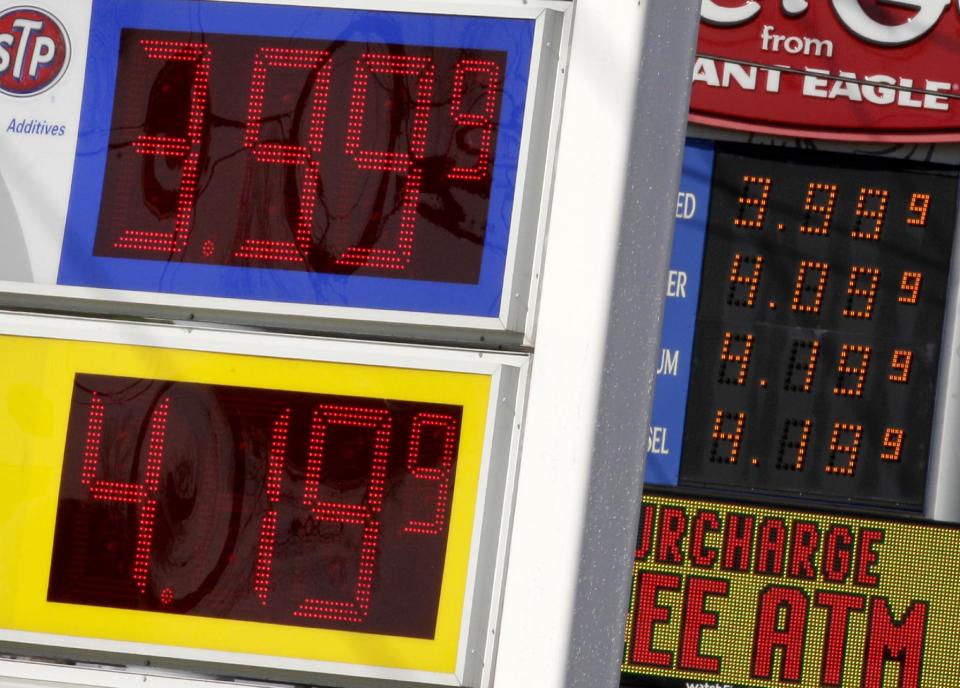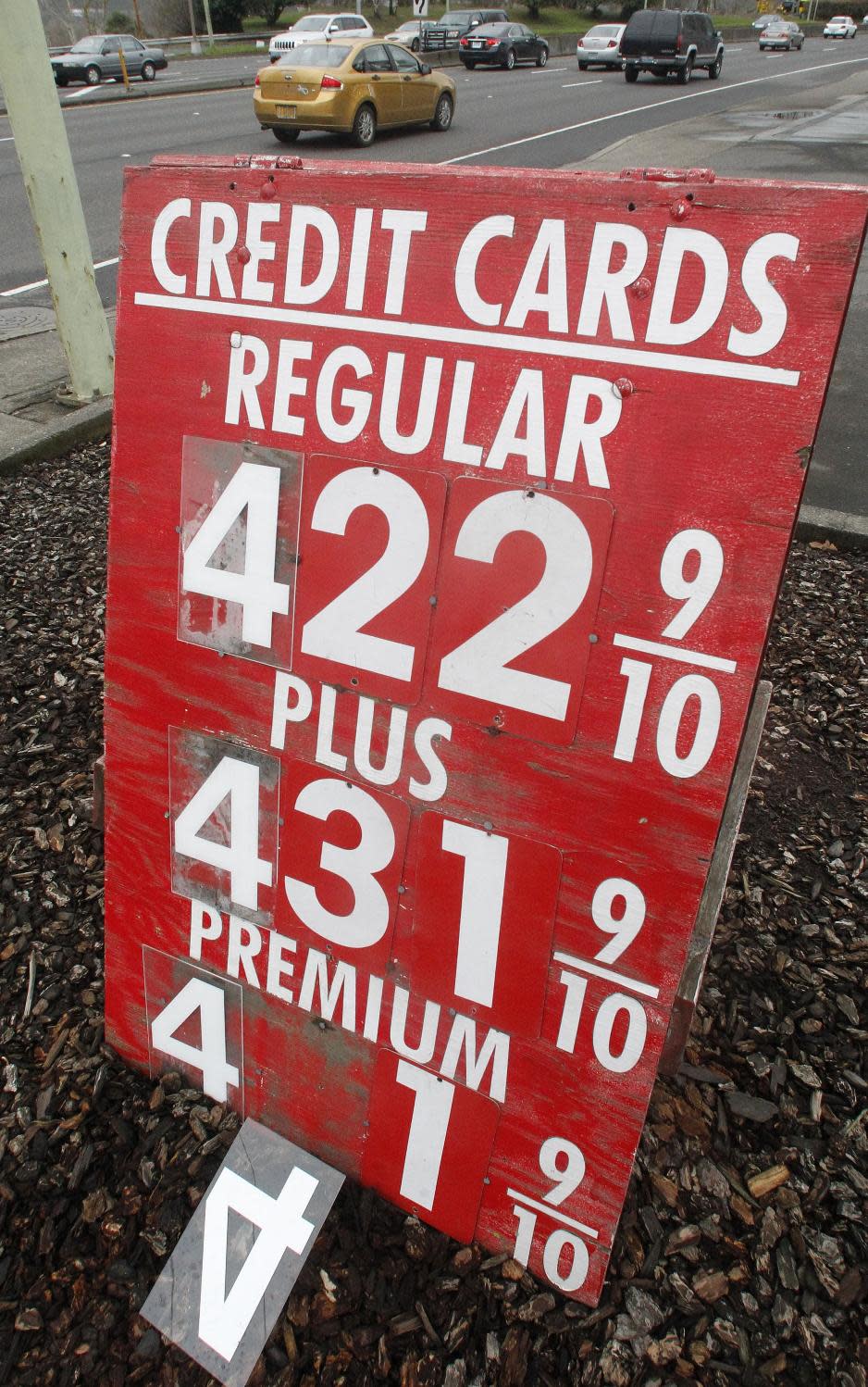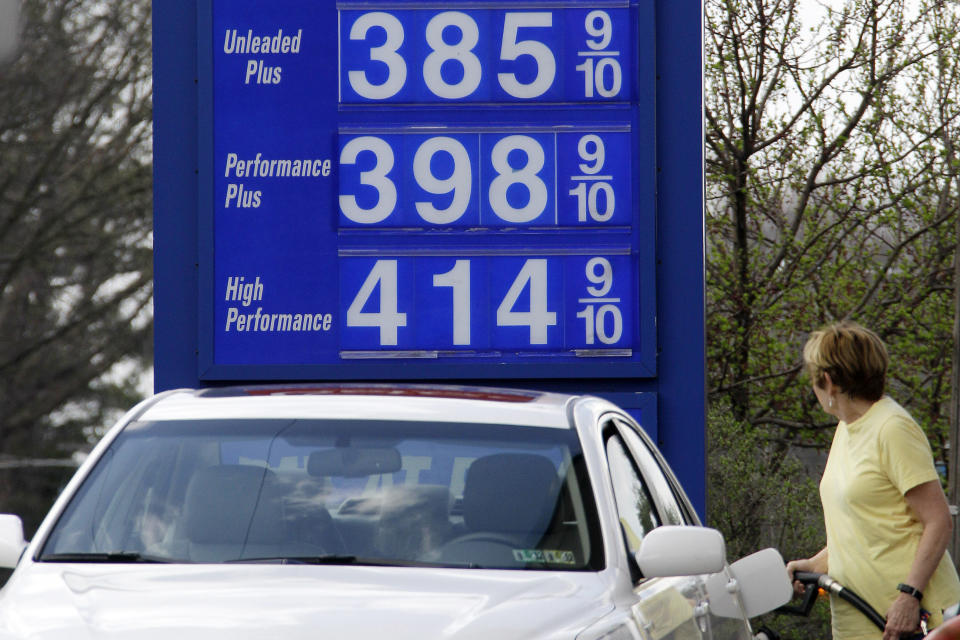Ad attacks Obama on gas prices with faulty logic
WASHINGTON (AP) — TITLE: "Deflect"
LENGTH: 30 seconds.
AIRING: Nationwide on cable TV and on local stations in Albuquerque, N.M.; Columbus, Ohio, and Las Vegas.
KEY IMAGES: The ad sponsored by Crossroads GPS, the nonprofit arm of a Republican super PAC, accuses President Barack Obama of pursuing "bad energy policies" that are driving up gasoline prices. Crossroads GPS is the sister group of American Crossroads, a super PAC that has promised to raise millions this election to defeat Obama.
The ad opens with a comparison of gasoline prices just before Obama took office — $1.83 per gallon on Jan. 19, 2009 — and the price three years into his presidency, $3.74 on March 12, 2012.
"Then and now," the narrator says. "The difference: President Obama's administration restricted oil production in the Gulf, limited development of American oil shale, and Obama personally lobbied to kill a pipeline bringing oil from Canada."
A headline appears on the screen: "As gasoline prices rise, president's ratings fall."
The ad cuts to the voice of National Journal's Major Garrett during a March 12, 2012, appearance on CBS' "This Morning", saying, "At the White House for three weeks the word has been 'deflector shield' on gas prices. Put up the deflector shield."
The narrator urges viewers to call and complain to the White House, "Tell President Obama bad energy policies mean energy prices we can't afford."
ANALYSIS: Republicans looking ahead to the fall election are seeking to tap into voter frustration over rising prices at the gas pump by blaming Obama for policies they claim are restricting U.S. oil production and pushing up energy costs. Frustration over rising gas prices promises to be front and center in the debate.
Gasoline hit a national average of $3.86 a gallon Wednesday. Obama has said drilling for new oil alone won't solve the nation's energy woes. Republican front-runner Mitt Romney has called on Obama to fire his top energy advisers, calling them the "gas hike trio."
The ad was timed to appear as Obama traveled this week to Nevada, New Mexico and Oklahoma for a trip to answer critics of his energy policies.
An Associated Press statistical analysis of 36 years of monthly, inflation-adjusted gasoline prices and U.S. domestic oil production contradicts the ad's key claim. AP's analysis showed no statistical correlation between how much oil comes out of U.S. wells and the price at the pump.
In other words, more oil production in the United States can't promise lower prices. Sometimes prices rise as U.S. production ramps up, which is what's happened over the past three years.
That's because oil is a global commodity, and U.S. production has only a tiny influence on supply. Factors far beyond the control of a nation or a president dictate the price of gasoline.
When you put the inflation-adjusted price of gas on the same chart as U.S. oil production since 1976, the numbers sometimes go in the same direction, sometimes in opposite directions. If drilling for more oil meant lower prices, the lines on the chart would consistently go in opposite directions. A basic statistical measure of correlation found no link between the two, and outside statistical experts confirmed those calculations.
The AP analysis used Energy Department figures for regular unleaded gas prices adjusted for inflation to 2012 dollars, oil production and oil demand.



